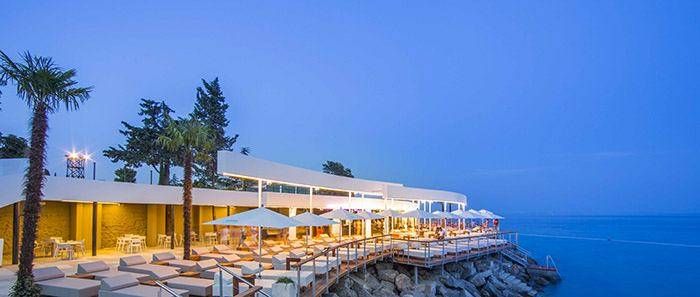


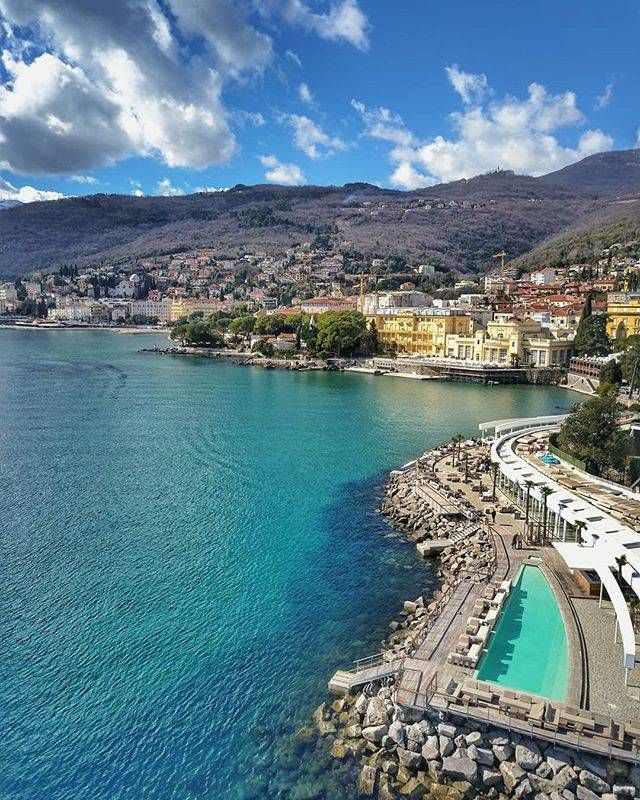
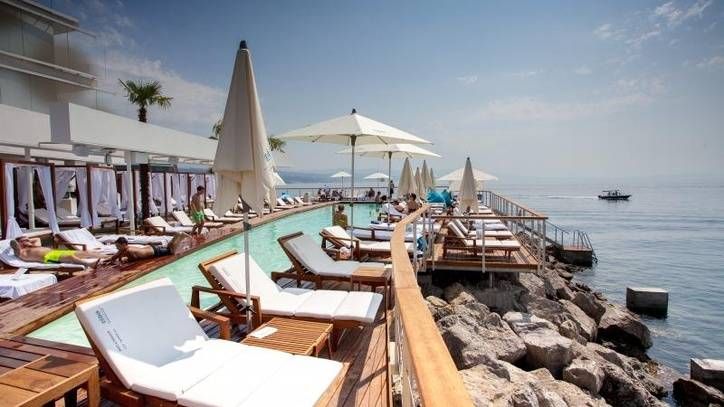
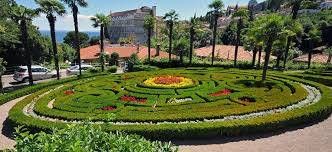
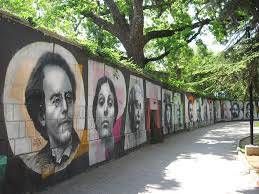

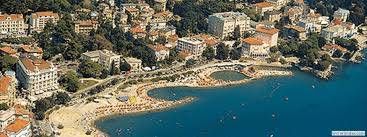
The working languages of the conference are English and Croatian.
University of Reading
UiT The Arctic University of Norway
The role of typological proximity in determining how previous linguistic knowledge affects/changes the process for the next language learned.
University of Chicago
Diminishing diversity: Language shift & loss
University of Jena
Endangered Romance and Slavonic varieties in Southeast Europe
University of Zagreb
Linguistic diversity and economic prosperity: a historical approach
Charles University in Prague
Uniformity versus Diversity: Dependency Grammar for All
Individual papers on topics related to the theme of linguistic diversity from the perspective of sociolinguistics, linguistic anthropology, cultural linguistics, cognitive linguistics, developmental linguistics (language acquisition and language attrition), linguistic typology, corpus linguistics, computational linguistics, communication science, and other related disciplines. Papers may focus on any language and any social context or historical period. We especially encourage papers considering endangered, minority and lesser-studied languages. List of participants and titles.
The panel is conceived as a collection of papers reporting on linguistically oriented empirical studies into language development – monolingual and bi-/multilingual, native and non-native, typical and atypical. The studies in mind are those whose primary goal is to look at factors influencing the acquisition and attrition of different linguistic phenomena – phonological, morphosyntactic, lexical,semantic, discourse and pragmatic. Papers adopting a variety of theoretical perspectives and methodological approaches and looking into different languages and language combinations are welcome. Papers dealing with less commonly studied languages and language combinations are particularly welcome.
Research on the relationship between the norm and use of the Croatian standard language has shown that differences between these two varieties exist even at the ortoepic level. These have already left its trace on contemporary codification, whereby different approaches are used to bring normative givenness and reality of use together. In order to contribute to a more complete understanding of contemporary challenges in standardisation, presentations will look at current accentual differences in the Croatian standard language.
Language as a symbolic tool of communication emerges from discursive practices that enact the embodied cognition and conceptualization patterns. Different types of construal patterns that are inherent in the linguistic structures provide a different cognitive approach to the referential ontological reality with potentially important pragmatic differences. The aim of this panel is to discuss theoretical approaches and methods, case studies, resources, and tools for researching the effects of linguistic construal on the conceptualization processes such as categorization, metonymic profiling, metaphoric mappings, and other figures of thought from a variety of diachronic and/or synchronic, cross-cultural and/or intra-cultural perspectives.
The panel aims to show diachronic and synchronic syntactic differences. We invite syntacticians and other linguists to contribute to the realisation of this goal. We welcome experts in the field of historical syntax to help us identify certain syntactic features from the Middle Ages until this day, as well as experts in contemporary syntax in order to determine the current state of syntax and form assumptions about its future. We believe that both traditional and contemporary approaches to syntax will find their place in this panel.
Linguistic diversity is inherent to linguistic geography (geolinguistics, dialect geography, also termed as areal linguistics in some literature, for which some authors believe that it is just a simplified linguistic geography schematized in line with the teachings of Neogrammarians). From its very beginnings, thanks to its founder J. Gilliéron and his idea to collect the data for a linguistic atlas of France, linguistic geography has focused on the distribution of linguistic phenomena in a particular area. Its task is to show, but also to analyze, the development of detected changes and to depict isoglosses on maps and in linguistic atlases, which enables us to track the migrations of the population and inter-language and inter-dialect relations in a particular area. However, contemporary linguistic geography should adapt its goals and methods (Brozović Rončević and Štokov 2017) to go beyond mapping and catch pace with the computer technology – researchers should aim at producing interactive on-line maps accompanied by sound recordings, transcripts, etc., which would be available to end-users. The goal of this panel is to see how the methods of linguistic geography can shed light on how linguistic diversity is reflected in the data collected primarily for the Slavic Linguistic Atlas (OLA) (project headed by the International Commission OLA founded in 1958 by the International Slavic Committee) and the European Linguistic Atlas (ALE), the most comprehensive international linguistic project, which was founded in 1970, despite much earlier announcements, and related to this, in the data collected for various national and regional linguistic atlases. The panel is motivated by the wish to present the results and perspectives with respect to presenting and analyzing linguistic diversity within the framework of these projects and by the wish to warn about the need for research of a greater number of dialectal points, because only detailed grids created by linguists for individual languages will enable the creation of faithful representations of linguistic diversity within particular languages and relations between various languages. Naturally, during this process, we have to detect various issues related to the interpretation of archival dialectal materials, that is, we have to take into account the issues involved in the process of standardising the transcripts, linguistic symbols and fonts, the format of comments, etc., all of which would enable us to create a standardised method for notation and comparison. In addition to this, we will try to warn about the possibilities, issues and limitations of linguistic geography in concrete domains of diachronic and synchronic linguistic research, e.g. historic phonology, lexicology, phraseology, anthroponomastic research, dialectal maps and the need for linking linguistic geography to digital humanities.
Corpus Linguistics has experienced in the last decades a steep growth both from the point of view of the number of resources available and of the volume of research based on its methodologies (McEnery/Hardie 2012). The increase in the number of resources is due to the larger availability of computers, but also to the exploitation of the Web as a source of linguistic data (Hundt et al. 2007). The increase of resources has not only concerned English, i.e. the language which has mainly benefited from corpus-based studies and from corpus building initiatives, but also many other (major, standard) languages. In addition to specific language resources, English and a number of other languages provided with strong traditions of standardization can benefit today from the presence of specific tools allowing the researchers to perform automatically the fundamental linguistic annotations: PoS-taggers, syntactic parsers, morphological analyzers, etc. This makes them high density languages in contrast to minority languages, dialects, non-standardized varieties or even poorly documented languages, which are defined low density languages (Maxwell/Hughes 2006). In the perspective of documenting, preserving and studying linguistic diversity, the workshop will raise the following questions:
-how can the methods of corpus linguistics be helpful?
-can the tools used for high density languages be used with low density languages?
-what kinds of strategies has been or can be used to circumvent the limitations of an existent tool to apply it to a low density language?
In this panel, we will try to answer these questions by gathering researchers working with a corpus linguistic methodology on varieties for which pre-cooked tools are not available.
Several linguistic approaches have claimed that parallel forms with the same meaning are rarely (if ever) evidenced in languages. For example, The Principle of Contrast (Clark 1987) claims that any two forms must contrast in meaning, and the Constant Rate Hypothesis (Kroch 1994) assumes some functional distinctions between similar forms. However, parallel forms with the same meaning are evidenced in languages: different forms of the same case in noun declension, different nominalization suffixes, parallel forms in verbal inflection, etc. It has previously been assumed that this phenomenon is rare in morphology, tends to be small and diachronically unstable (e.g. Kroch, 1994), but this view has been challenged in recent literature (e.g. Fehringer 2004, Thornton 2011). The study of morphological doubletism across the world’s languages currently is a fruitful area of research. It can answer questions which stand as the basis of our understanding of language, primarily whether the language system is a perfect system where doublets constitute only a temporary or transitional state, or if it is a more unstable system of which doublets are a component on a pair with other components. It is hardly ever the case that both members of the same cell display equal frequency in usage (Thornton 2012). In that sense, the two forms compete, and one of them is more prevalent. Theoretical models that can explain this manner of competition revolve around two approaches. One is polarized between one regular (default) and one irregular paradigm. According to this, irregular paradigms show evidence of overgeneralisation and paradigm change when frequency is considered (e.g. Pinker 1984). Consequently, frequent doublets will be more prone to using irregular patterns, while less frequent words will more likely conform to the regular paradigm. The other approach introduces language typology as a relevant factor, stating that morphological change is always governed by similar principles, such as morphotactic transparency (Dressler 2005) or morphological complexity (e.g. Dahl 2004). In this panel, research of morphological doublets in several languages will be outlined, together with some theoretical assumptions and practical considerations regarding morphological doubletism.
Workshop: 09:00-10:30
Jason Rothman, University of Reading / UiT The Arctic University of Norway
Jennifer Cabrelli Amaro, University of Illinois at Chicago
Language and Cognition: Bilingualism changes our Minds and Brains
Organized by Tihana Kraš on behalf of Bilingualism Matters@Rijeka and the AThEME project
Roundtable: 11:00-13:30
Challenges of minority language maintenance: A community perspective
Organized by Branka Drljača Margić, Tihana Kraš, Maša Plešković and
Zvjezdana Vrzić on behalf of Bilingualism Matters@Rijeka, the AThEME project and Center for Language Research
Social Event: 13:30-15:30
Cultural Diversity Fest
Music and gastronomy of the cultures in Rijeka and Istria
Organized by Diana Grgurić, Benedikt Perak on behalf of Department of Cultural Studies Department, Faculty of Humanities and Social Sciences and Center for Language Research
Katarina Petrović, Ana Javor, Franka Blažić, Andrea Škiljan, Interdisciplinarni kolektiv Manufaktura
UNIRI University colloquium: 15:30-17:00
Lenore Grenoble, University of Chichago
Contact-induced morphosyntactic change: Russian in Eurasia
Organized by Zvjezdana Vrzić and Silvana Vranić on behalf of the University of Rijeka
Talk: 17:00-18:30
Shigenori Wakabayashi, Chuo University
Second/foreign language systems: Why are some grammatical rules more difficult than others?
Organized by Tihana Kraš on behalf of Bilingualism Matters@Rijeka and the AThEME project
The guidelines for the paper submission are as follows:
1. Please submit your finished article by November 1, 2018 by sending it to clarc2018@gmail.com.
2. Your e-mail should contain the author's first and last name, affiliation (name of the institution and its address), e-mail address and the title of your article.
3. Your paper should not exceed 28000 characters, including spaces.
4. Your paper can be written in either English or Croatian.
5. Your paper should include an abstract written in the language of the article. This paper abstract should not exceed 1,800 characters with spaces or 300 words.
6. Your articles should also have a summary of about 2,000 characters with spaces, placed at the end of the article. This summary should be longer and more detailed than the abstract, present the aim of the article, its theoretical background and methodological procedure, as well as the most important results and conclusions. If your article is in English, this summary should be in Croatian. If you are not able to write your summary in Croatian, please write it in another language, such as German, French or Italian. If your article is in Croatian, the summary should be in English.
7. Following the summary, please also include three to five key words in the language of the article.
8. If you are not a native speaker of the language of the article, you will be expected to have the article proofread upon notification of acceptance.
9. Please ensure that you have written permissions to use all tables, charts, figures, etc., for which the copyright is owned by others.
10. Please consult the Suvremena lingvistika guidelines at http://suvlin.ffzg.hr/index.php/en/authors/paper-submissions for paper formatting. You can find this information under the headings Manuscript format and Citation of sources.
11. All articles will undergo a double-blind peer review.
Early registration: March 1 – April 15, 2018
Payment from abroad: 75 EUR (students 50 EUR)
Payment from Croatia: 525 HRK (students 375)
Late registration: April 16 – May 7, 2018
Payment from abroad: 100 EUR
Payment from Croatia: 700 HRK
Benedikt Perak (co-chair)
Zvjezdana Vrzić (co-chair)
Vesna Deželjin
Branka Drljača Margić
Cecilija Katunar
Tihana Kraš
Mihaela Matešić
Diana Stolac
Iris Vidmar
Silvana Vranić
Martina Blečić
Greta Grakalić Rački
Students:
Tajana Rogina, Matea Marchini, Jakov Kršovnik, Ivan Miškulin, Roberta Špoljarić, Andrea Poje, Iva Marija Pitlović, Tanja Vrbanac, Sven Toljan, Doris Datković, Ana-Maria Matošević, Ivana Koren, Dalibor Hrelja
Vesna Deželjin
Branka Drljača Margić
Cecilija Katunar
Tihana Kraš
Mihaela Matešić
Benedikt Perak
Jason Rothman
Diana Stolac
Iris Vidmar
Silvana Vranić
Zvjezdana Vrzić
Lenore Grenoble
Thede Kahl
Daniel Zeman
Conference dates:
June 8 - 10, 2018
Submission deadline (individual paper and panel proposal abstracts):
November 30, 2017
Notification of acceptance (individual paper and panel proposal abstracts):
January 19, 2018
Early registration: March 1 – April 15, 2018
Late registration: April 16 – May 7, 2018
Conference program announcement: May 15, 2018
Publication submission: November 1, 2018